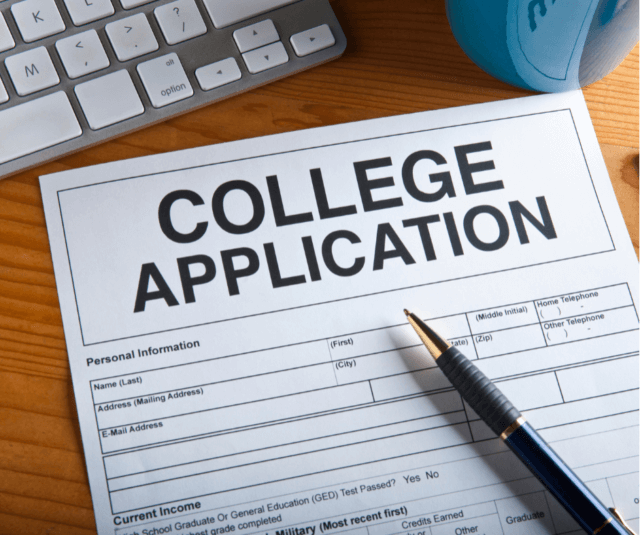Unhappy With Your GCSE Results? Here’s What You Can Do About It
While children across the UK revise for their SATs, the GCSEs are – for most people – their first experience of examinations that will define their future. On the 25th of August 2022, students will anxiously open an envelope and receive their results.
Those revision sessions and support should pay off – but what if it doesn’t? Many students fail to achieve the grades they want, and while getting a grade 6 instead of a 7 in certain subjects might not seem like a big deal, it can have an impact.
If you’re one of those students, don’t worry – you’re not alone. There is still time to turn things around and get your education. In this blog post, we’ll discuss your options and help you decide what to do next.
Is Getting A Grade 6 Really That Bad?
First off, passing your GCSEs is a huge accomplishment, and if you secure enough passing grades, you will be eligible to take your A Levels. However, the big issue for many people is whether their grades will limit their college or sixth form choices.
Some of the most prestigious colleges in the UK will receive many applications, and they’ll admit the top-scoring students.
While this doesn’t necessarily mean that you won’t be able to do your A Levels elsewhere, if you’ve put in a lot of work to attend that college, it can be disheartening to find out you’re no longer eligible.
Subject Choices
Another thing to consider is which subjects you’d like to study at college because your grades can impact your choices. For example, if you hope to become a doctor one day, you should focus on science subjects for your A Levels as it will impress universities.
Students who fail to secure a grade 7-9 might not be able to study science because it’s one of the more challenging subjects. As colleges want to know that their students will succeed, you could lose out on an opportunity.
It’s the same with other competitive subjects such as English, Maths and Business Studies, so while scoring slightly lower might not seem like a big thing, it can lead to disappointment.
You Don’t Have To Accept A Lower Grade
So, you don’t manage to get top grades, and you have to accept it – right? Absolutely not! There are plenty of routes to secure a place at the college you want, and many students bounce back and get the grades they deserve.
Let’s take a look at what you can do next.
Appeal If You Think Your Grades Are Unfair
If you’re convinced that your grades don’t accurately reflect your ability, or if there was an issue on the day of your exams, you can appeal the decision. Everyone has the right to file an appeal, but you should know that the decision doesn’t always go in favour of the student.
Some appeals result in the grade staying the same, or you might even receive a lower grade – but if the decision is genuinely wrong, the examination board will fix it.
The first step is to contact your school and explain why you believe the grades are wrong. They won’t be able to change them, but they can get the examination board and ask them to review your exam.
While the examination board is usually fair, if you still don’t get the results you want and feel you’re genuinely wrong, then you can contact Ofqual.
See the entire appeal process here.
Get In Touch With The National Careers Service
If you’re not sure what to do next, the National Careers Service can help. They’re a free organisation with a page dedicated to the next steps after receiving your GCSE results.
The website provides impartial advice about employment and training options, and you can get in touch with an adviser if you’d like some support. While they won’t be able to get you into the college you want, they will help you to explore your options, and you might find another place to study.
Some people don’t want to wait to retake their GCSEs, so it’s always good to speak to an adviser before you make a decision.
Retake Your GCSEs
One option is to retake your GCSEs, which will give you another chance to improve your grades and get into the college of your dreams.
You might be worried about how this will affect your mental health, but it’s important to remember that everyone is in the same boat – plenty of students retake their exams yearly.
The government now requires all students to achieve at least a grade 4 in their Maths and English exams, so if you didn’t get the grades you wanted, you could resit the examination with other students in November.
In some cases, you might have to wait until the following year, but you could take a gap year, go back to college or study online. Some colleges look at a student individually, so it’s possible to get onto the courses you want and retake the GCSE while studying for the AS Levels.
Is Retaking The Exams Your Best Option?
When you don’t get the results you want, it’s essential to understand that you have plenty of options. The first step is to sit down with your parents and discuss them because while it’s ultimately your decision – your family will be there to offer support.
Retaking the exams can open up more opportunities for you in the future, and many students choose this route because scoring high on the GCSEs will ensure you study at the college you want.
A gap year can also be beneficial if you didn’t get the grades you wanted and need some time to improve them.
The main thing is not to panic and to ensure you weigh your options before deciding. Once you know what you want to do, the next steps will be much easier.
How To Retake Your Exams Successfully
If you’ve decided that retaking your exams is the best option for you, then there are a few things you can do to ensure you’re successful. Let’s take a look at them.
Look At The Why’s
The first step is to understand why you didn’t get the grades you wanted in the first place. Was it because of nerves on the day? Because you didn’t revise enough? Once you know what went wrong, you can make sure it doesn’t happen again.
For example, if it is nerves, you can take steps to ensure you stay calm during the day, including breathing techniques and even counselling in severe cases of anxiety.
If you didn’t revise enough, try to create a revision timetable and stick to it. It’s easy to leave everything to the last minute, but this usually causes lower grades.
Get Help From A Private Tutor
One of the best ways to get the grades you want is to hire a private tutor. They’ll be able to help you with your revision, and they’ll also be able to give you tips on how to stay calm on the day of the exam.
The best thing about working with a private tutor is their experience in teaching. At Fleet Tutors, we require all our GCSE tutors to have teaching qualifications and experience in a classroom environment so our students receive the best possible support.
Your tutor will work with you to identify any topics you struggle with and develop a bespoke plan to ensure you secure top grades during your resits.
The Bottom Line
The most important thing to remember if you’re unhappy with your GCSE results is that you’re not alone. Thousands of students retake their exams every year and secure top grades.
Once you work on the areas you struggle with, you can look forward to a better future with all the opportunities you deserve.
Hiring a private tutor is one of the best things you can do to improve your chances of success, and at Fleet Tutors, we have a team of experienced and qualified tutors who can help you achieve top grades.
If you’d like to discuss our tutoring services, please don’t hesitate to contact our friendly team. We’d love to help you and guarantee a bespoke service tailored entirely to your needs.


